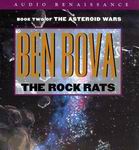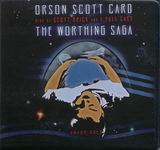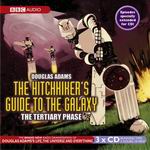
 The Rock Rats
The Rock Rats
By Ben Bova; Read by Ira Claffey, Amanda Karr, and Cast
9 CDs – 10 hours [UNABRIDGED]
Publisher: Audio Renaissance
Published: 2005
ISBN: 1593974922
Themes: / Science Fiction / Space Travel / Asteroids / The Moon / Environment /
The asteroid belt is a fascinating area because it does represent the gold mine of the 21st century. Gold, silver, iron, platinum, any material you want is out there, and out there in enormous tonnages. Hundreds of thousands of billions of tons of all the mineral and metal wealth you can imagine… …the struggle in The Asteroid Wars is over who is going to control this wealth.
–Ben Bova in the Introduction to The Rock Rats
This is the second volume of Bova’s Asteroid Wars, a series which in turn is part of the larger group of novels called The Grand Tour. The first book, The Precipice, detailed the initial trip out to the asteroid belt, but this novel stands on it’s own and can be easily read and understood without reading the first.
Two of the people that were on that first ship to the asteroid belt, Lars and Amanda Fuchs, have returned to the belt along with many others. These pioneer miners call themselves “Rock Rats”, and form a loose society reminiscent of America’s Old West. You can’t call the police from the frontier, so justice is handled vigilante-style, and the laws of Earth no longer apply.
The rich and greedy Martin Humphries is still part of the equation, and he’s able, from his comfortable office on the Moon, to direct some of his people to stake claims on asteroids. The fact that they had already been claimed didn’t matter much to him. And thus, the war over control of those resources begins.
Bova covers a lot of territory in this book. There are scenes from the frontier, including a realistic battle between two ships with make-shift weapons that work like weapons would in space. Then there are scenes from the board room back on the Moon, where discussions are takng place about how to profitably get material back to Earth and how the stuff is going to affect the global economy. At opposing sides are those who are cognizant about the environment and those who solely want cash and power.
Scott Brick and cast did a fine job with the book. The narrator switches as point of view switches in the text, and I’m fining that technique more agreeable each time I listen. All the narrators were strong storytellers, and I’m left anxious to hear the third book, which luckily is on my shelf.
Audio Renaissance has published several of Ben Bova’s Grand Tour books in unabridged format.
Posted by Scott D. Danielson





